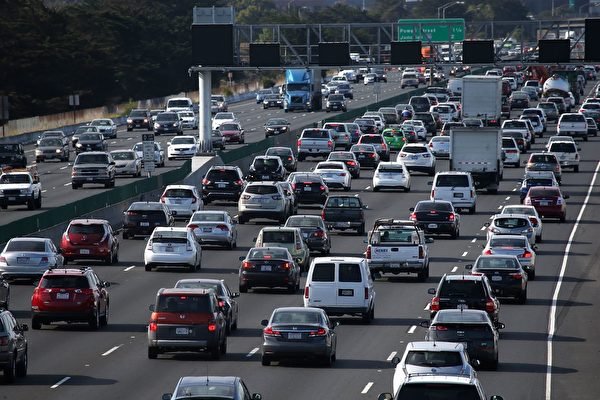Chinese self-driving car companies have been quietly testing their technology on California roads. How are they exploiting regulatory loopholes to enter the United States? And how is the US government plugging these gaps?
Companies such as Baidu, Didi, WeRide, Pony.ai, and AutoX, well-known Chinese autonomous driving car companies, have offices in Northern California, adjacent to many American autonomous driving car companies.
According to CNBC, based on data from the California Department of Motor Vehicles (DMV), these five Chinese companies conducted over 1.6 million miles of testing on California roads between 2017 and 2023.
The DMV is responsible for issuing Autonomous Vehicle (AV) Testing permits to companies testing autonomous driving cars in the state.
According to the DMV website, Didi is the only one among these five Chinese companies that no longer holds a valid AV testing permit.
Foreign and domestic companies in California are subject to the same standards for AV testing permits.
It is clear that Beijing does not provide equal treatment to American businesses. The Chinese government does not allow foreign companies to directly access high-resolution maps crucial for autonomous driving systems, while also cracking down on any commercial activities transferring data overseas.
In 2016, then-California Governor Jerry Brown signed a new law, allowing the testing of fully autonomous vehicles on public roads without driver intervention for the first time. The law permits fully autonomous vehicles without a steering wheel, accelerator pedal, brake pedal, or driver intervention to be tested on California highways.
Michael Dunne, CEO and founder of Dunne Insights, a consulting company, told CNBC that Chinese companies testing AV in California have “carte blanche” authority.
“They recognize that Silicon Valley is the cradle of autonomous driving technology,” said the San Diego automotive consultant specializing in Chinese issues.
Dunne noted that Chinese companies have also hired many former employees of American tech companies like Apple, Tesla, Waymo, or Cruise, involved in autonomous driving car development.
For example, Baidu has employed hundreds of software engineers who have obtained permission from the California DMV to test vehicles on public roads.
During the COVID-19 pandemic, these companies shifted much of their research to China when Beijing closed the Chinese border but allowed key researchers to return to China to continue their work.
Regarding Chinese companies’ business plans, Dunne said that they aim to “recruit the world’s best talent. We have the money, we want to build a world-class company. Utilize that knowledge, bring it back to China, apply it to our vast domestic market, and we can start operating.”
“If California were excluded, China’s autonomous driving industry would be far below its current level,” Dunne said in a previous media interview.
Concerns have been raised by lawmakers about Chinese companies collecting data on American drivers and infrastructure through connected cars, as well as the possibility of foreign manipulation in cars linked to the internet and navigation systems. In February, the White House ordered an investigation into the potential dangers of Chinese connected cars.
In September, the Commerce Department proposed banning the use of Chinese software and hardware on connected cars on US roads for national security reasons. The software ban is planned to take effect in 2027 model years, while the hardware ban will take effect in model year 2030 or January 2029, effectively prohibiting almost all Chinese cars from entering the US market.
Missy Cummings, former senior safety advisor at the National Highway Traffic Safety Administration, told CNBC that the ban is a good start.
“These cars are like monitors,” Cummings said. “They have multiple cameras observing everything from different angles, under the guise of testing, they can repeat the same patterns day after day.”
Cummings added that these vehicles collect “critical information, which might not appear confidential but is certainly sensitive, including lifestyles, vehicles entering and exiting certain facilities, and how our supply chain operates.”
With actions from the White House, Chinese autonomous driving car companies have largely withdrawn from the US market.
Dunne told CNBC that during the peak of autonomous driving car testing in California before the COVID-19 pandemic, over 14 companies were testing their cars in California, Nevada, and Utah, but now there is “almost no evidence or intention” to suggest that any Chinese autonomous driving car manufacturer is preparing to launch products in the US.
US and Chinese Commerce Ministers held a call on October 8. The Chinese side expressed serious concerns about US restrictions on Chinese connected cars.
The US reiterated that national security is non-negotiable, and the Biden administration’s policy of building a “small yard high wall” is aimed at maintaining US national security as targeted as possible while leaving room for healthy trade and investment.
In a statement banning Chinese connected cars in September, Commerce Secretary Raymondo said, “We will not wait until our roads are clogged and the risk becomes grave before we act against suppliers, automakers, and auto parts from China or Russia becoming ubiquitous and prevalent in the US auto industry.”

